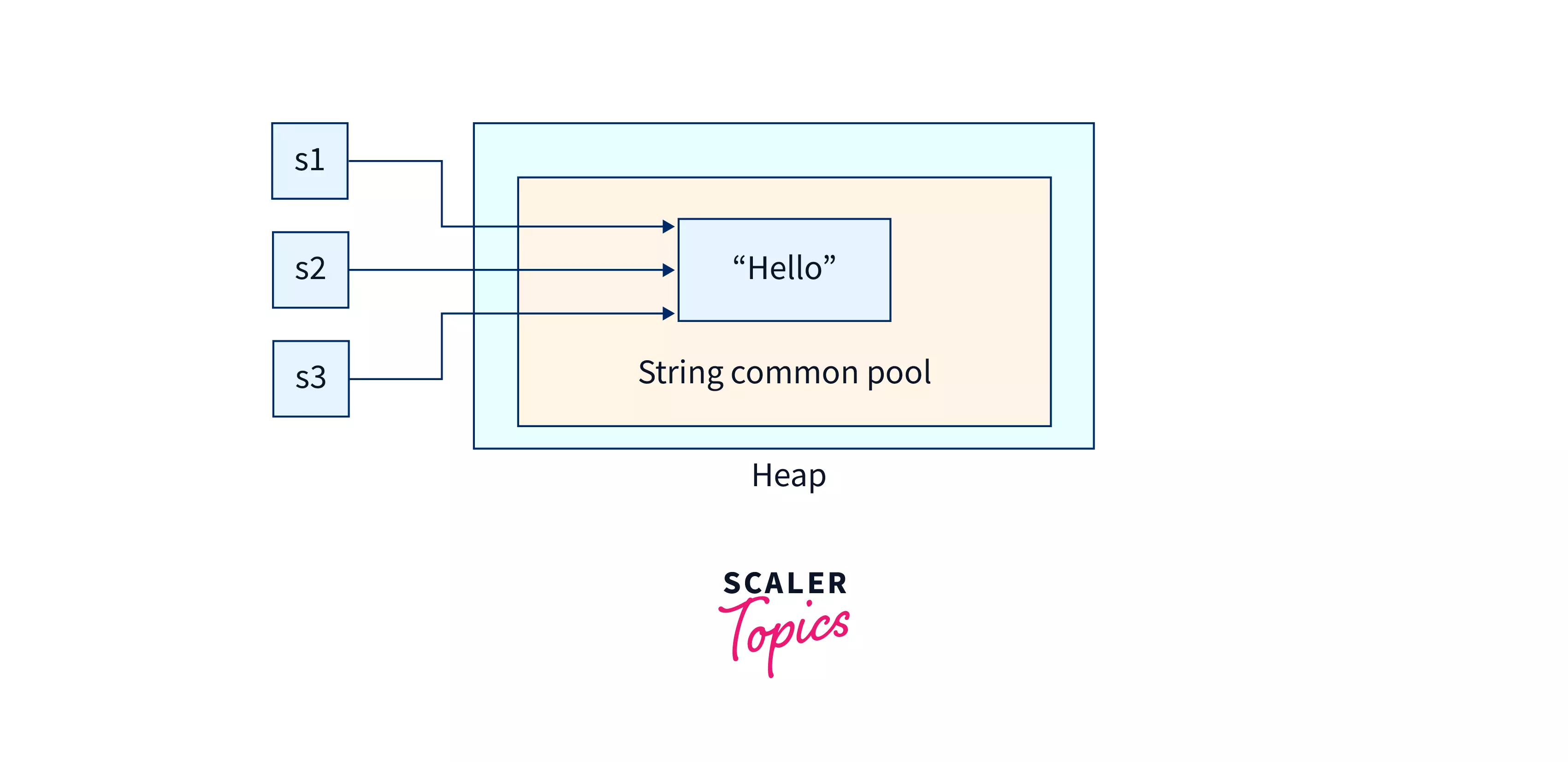Why Are Strings Immutable in Java? Trick Factors and Advantages Discussed
Exploring the Advantages of Unalterable Strings in Modern Shows Paradigms
In the world of contemporary programming paradigms, the principle of unalterable strings stands as a keystone of robust software program growth. By adopting unalterable strings, developers can make sure enhanced information stability, improved thread safety, streamlined debugging procedures, boosted safety and security procedures, and reliable efficiency optimization.
Enhanced Data Integrity

By protecting against the modification of string items, immutability eliminates the threat of unintentional modifications to the information they hold. This not only boosts the safety and security of the information however also enhances the integrity of the code that depends on these strings.
Immutability also supports more secure multithreading environments, as concurrent accessibility to unalterable strings does not pose the threat of data corruption with simultaneous alterations. This property simplifies the procedure of dealing with strings in identical programming circumstances.
Fundamentally, immutability functions as a safety guard around the data saved within strings, boosting their stability by making certain that when specified, their worths remain unchanged throughout the program's execution.

Improved Thread Safety
Immutable strings boost the string security of programs by making sure that as soon as a string things is produced, its value can not be customized. This residential or commercial property gets rid of the risk of simultaneous threads trying to change the same string simultaneously, which could bring about information corruption or inconsistent states in the program - Why are strings immutable in Java?. In a multi-threaded atmosphere, where several threads gain access to and control data at the same time, the immutability of strings supplies a degree of safety and security by guaranteeing that the data remains unchanged throughout its lifecycle
Streamlined Debugging Processes
Given the boosted string safety and security promoted by immutable strings, a considerable advantage occurs in the world of streamlined debugging procedures. Unalterable strings, as soon as created, can not be modified, making it less complicated to trace the flow of information and identify the source of bugs in a program. This immutability makes sure that strings remain consistent throughout the execution of the program, minimizing the chance of unexpected modifications that could bring about errors.
When debugging with mutable strings, developers often experience concerns where a string's worth is changed accidentally, making it testing to pinpoint the origin of a bug. Nonetheless, with unalterable strings, the information stays unchanged, allowing developers to focus on examining the real logic of the code instead of finding where and when a string was modified incorrectly.
Additionally, immutable strings simplify the debugging process by allowing much easier recreation of bugs. Because immutable strings do not transform state, programmers can recreate and research insects better, leading to quicker recognition and resolution of issues within the codebase. This structured debugging operations inevitably adds to higher software program quality and improved general development performance.

Enhanced Safety And Security Procedures
Enhancing information security and strengthening system stability, the utilization of unalterable strings in software program applications adds substantially to boosted safety steps. Immutable strings, when produced, can not be customized, giving a critical protection versus malicious meddling or unauthorized access. By ensuring that sensitive data saved in strings continues to be unchanged click now throughout the program's execution, the risk of data violations or injection attacks is considerably decreased. Why are strings immutable in Java?. Immutable strings likewise play an important role in preventing typical security susceptabilities such as barrier overflows and SQL shot strikes, as efforts to manipulate string information at runtime are inherently restricted.
In addition, the immutability of strings improves the predictability of program actions, making it less complicated to see this page verify inputs and avoid unanticipated changes that can compromise security. This predictability streamlines the process of auditing and confirming code, making it possible for programmers to determine possible safety technicalities better. Generally, incorporating immutable strings into software growth techniques not just improves the toughness and reliability of applications but likewise reinforces their durability versus security threats.
Effective Efficiency Optimization
When dealing with mutable strings, operations like concatenation or substring creation commonly result in the development of brand-new string objects, leading to memory expenses and raised processing time. By allowing strings to continue to be unchangeable and consistent, immutable strings help with better memory management and caching chances, eventually boosting the overall effectiveness of the software application.
Given that immutable strings can not be customized once produced, they can be shared throughout threads without the danger of unanticipated changes, lowering the need for synchronization devices and boosting concurrency. Unalterable strings simplify debugging processes as programmers can trust that a string's worth will certainly continue to be consistent throughout the program's implementation, eliminating possible mistakes triggered by mutable go right here state changes.
Conclusion
To conclude, the benefits of making use of immutable strings in contemporary shows paradigms can not be overemphasized. Boosted data stability, enhanced string safety, streamlined debugging processes, increased safety and security actions, and efficient performance optimization all add to the general efficiency of programs jobs. By integrating unalterable strings right into programming practices, programmers can take advantage of a more trustworthy and robust codebase.
Immutability, an essential function of strings in programming languages such as Java and Python, makes sure that when a string things is created, it can not be altered or changed.Immutable strings enhance the thread security of programs by ensuring that as soon as a string object is produced, its value can not be customized. Immutable strings also play a crucial role in protecting against common protection susceptabilities such as barrier overflows and SQL injection attacks, as attempts to adjust string data at runtime are inherently restricted.
By allowing strings to stay unchangeable and constant, immutable strings assist in far better memory administration and caching chances, ultimately boosting the general performance of the software.
Immutable strings simplify debugging procedures as developers can trust that a string's value will continue to be consistent throughout the program's implementation, removing prospective mistakes caused by mutable state adjustments.